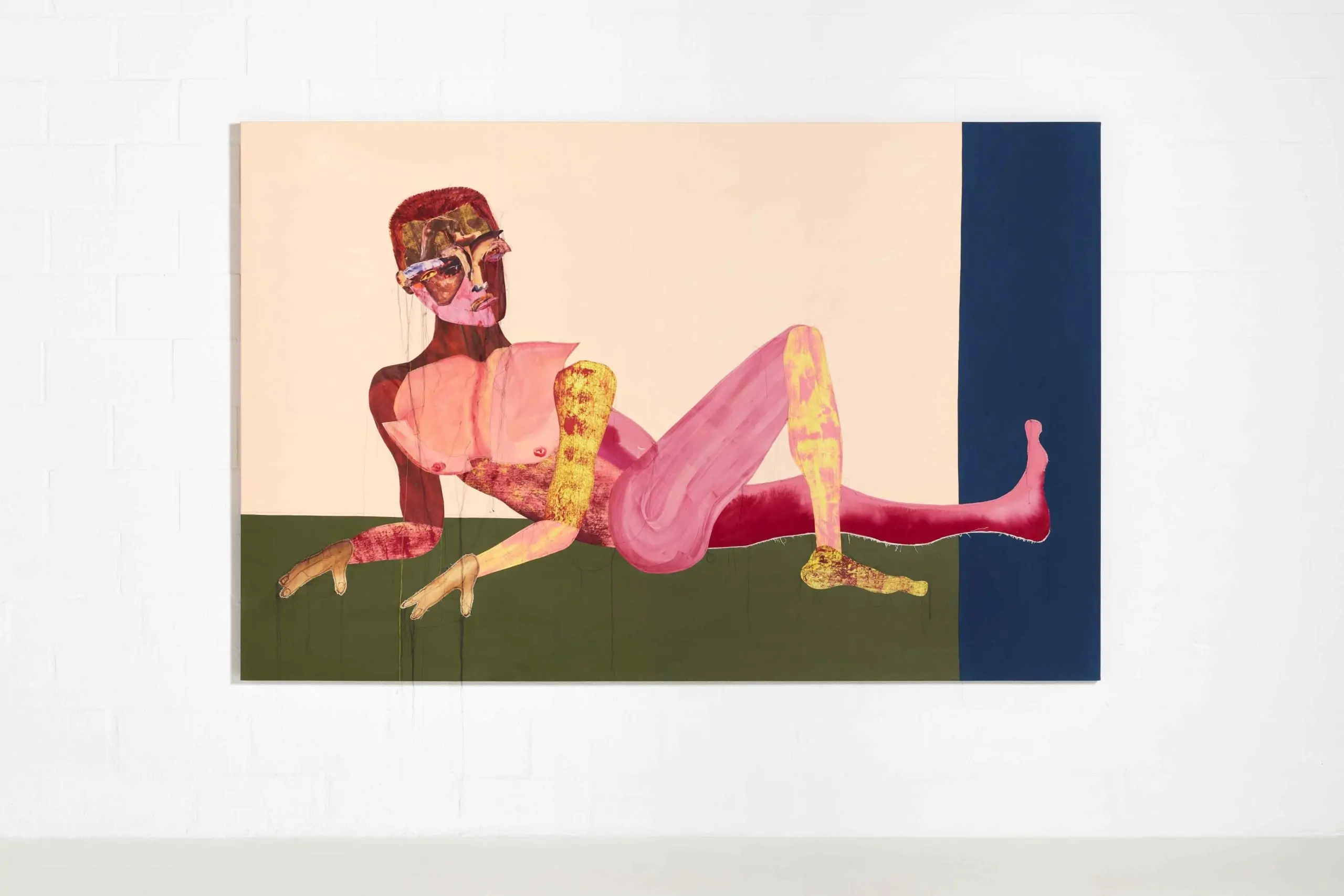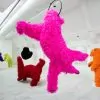Mother Tongues: A group exhibition
22 February – 18 April 2024
Southern Guild
747 N Western Ave
Melsrose Hill
Los Angeles
Southern Guild opens its new gallery in Los Angeles with a dual presentation: Mother Tongues, a group exhibition featuring 25 artists from the African continent, and Indyebo yakwaNtu (Black Bounty), a solo show by South African sculptor Zizipho Poswa.
The term ‘mother tongue’ refers not only to the first language of acquisition, but the first with regard to its importance and the speaker’s ability to master its linguistic and communicative aspects. One’s mother tongue is not only how a person positions themselves to the world, but how they position themselves in the world. Like the body, it is a border – a place of contact and confluence, an intersection of negotiations.
The expansion of Southern Guild into California is not unprecedented. In the late 1960s, a group of artists left South Africa in the wake of the Sharpeville Massacre, mass bannings and the censorship of political parties and cultural workers, eventually establishing a contact point for the interchange of knowledge and meaning between South Africa and California.
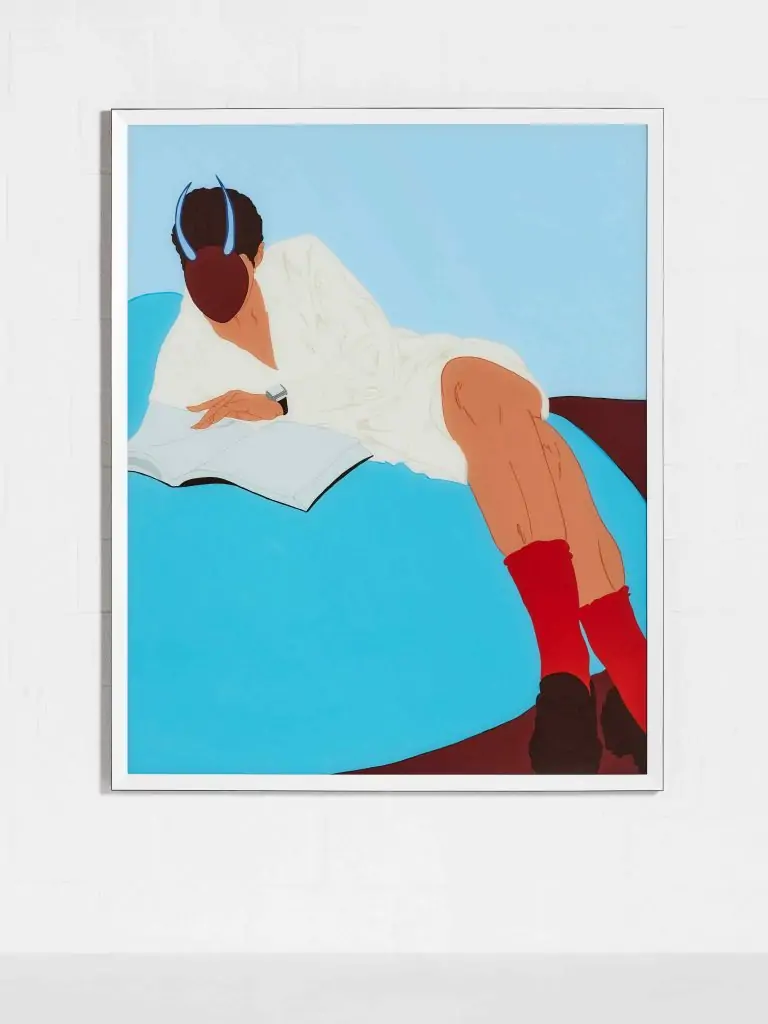
Credit Hayden Phipps & SGuild.
Southern Guilds positions itself at the later trajectory of this artistic migration. Having willed the promises of the future into the now with his cover of The Mamas and Papas hit California Dreaming, it is in Los Angeles where Hugh Masekela, arguably one of the continent’s most renowned cultural exports, establishes a home for Afro sounds as an imprint of Motown Records. Where Letta Mbulu lays a vocal track on Michael Jackson’s Liberian Girl. Where the Roots soundtrack is produced with several South African musicians. It is here where another touchpoint emerges. A point of contact, a border. Porous and primed for the osmosis of different kinds of “mother tongues” and emergent vernaculars.
With this inaugural exhibition, Southern Guild hopes to open a new chapter of exchange. The show occupies multiple contact zones, moving between visible surfaces and interior states. Taking a multi-generational and transnational lens, it charts the way in which language and pedagogy is channelled into diverse forms of expression. Though the nature of this enquiry requires a singular focus, its sights must be multiple.
Award-winning visual activist Zanele Muholi’s stark portrait Siyikhokonke speaks to this heterogeneity. They position themselves on either end of the lens, both captured and capturer. Participant and image-maker. Black and white, the work presents itself in contrasts and dichotomy but the title – loosely translated as “we are everything” – speaks to the multiplicity of being. Of everything being everywhere, all at once. Poly, not polar. Where Muholi locates themselves in the frame, the singular standing for many, Jody Paulsen’s portraits are many made one. A corporeal collage, his nude portraiture consists of limbs and ligaments in inked fabric and thread, stitched and spliced together creating a vulnerable, intimate personhood.
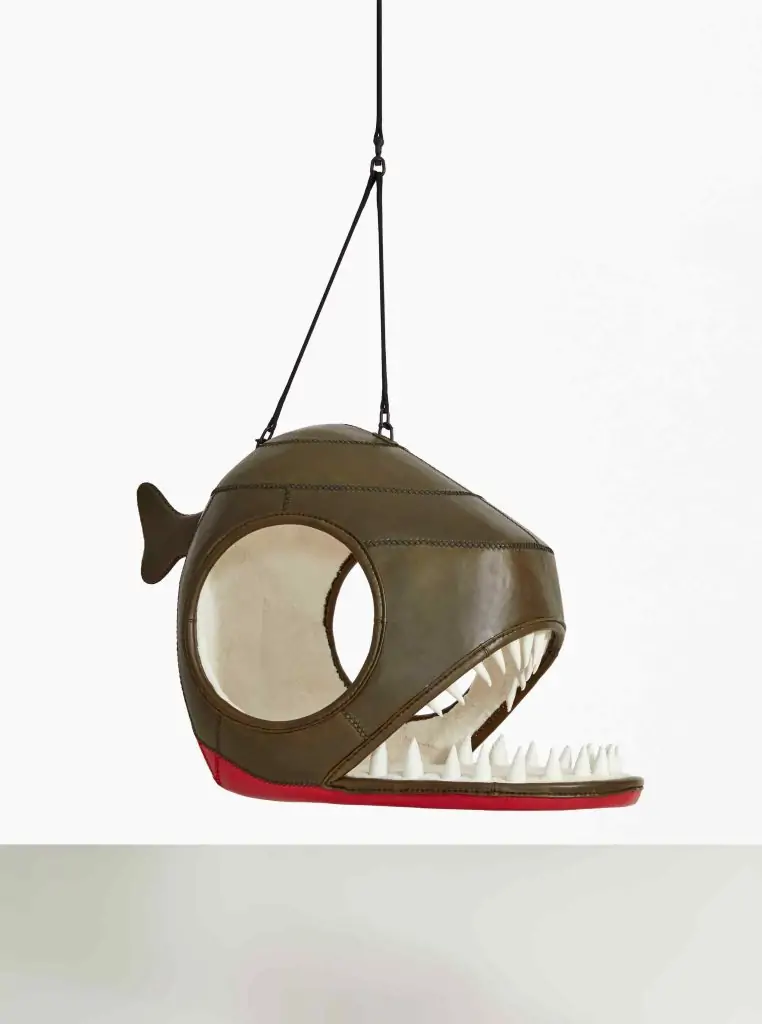
Credit HaydenPhipps & SGuild
Paulsen’s figures present themselves for steady observation, but similar to emerging artist Jozua Gerrard’s masked figures painted in enamel on glass or Justine Mahoney’s collage sculptures, they trouble the act of looking. Here, seeing offers no comfort of context but rather entry points to possibilities of (mis)understanding. This is the lexicon. Fragmented narratives made whole in the mind of the viewer. In Tony Gum’s performative portraits, the body is a continent burdened with stories.
Manyaku Mashilo’s artistic foundation lies in the historically charged realm of portraiture, yet she considers her paintings to be abstractions. Mashilo’s artistic practice serves as a means of sense- making; her canvases function as liminal spaces where she synthesises elements of her religious upbringing, ancestral heritage, a blend of real and imagined myths, folklore, science fiction, music, and sourced archival photographic images. Nigerian-Canadian artist Oluseye also works in the “in-between”, re-animating found objects and detritus collected from his trans-Atlantic travels into talismans akin to those that Africans carried for protection on their forced and voluntary journeys across the ocean. By incorporating Yoruba cultural references, he blends the ancestral with the contemporary, rejecting binary distinctions between tradition and modernity, physical and spiritual realms, past and future, and old and new.
For renowned South African ceramicist Andile Dyalvane, the connection to home comes through his medium – clay or “umhlaba” (mother earth) – a life-force that tethers him to the rural village of his birth. As a medium for storytelling, it is also an essential energetic link to his past, present and future.
Patrick Bongoy’s rubber wall hangings transmute the inert and impermeable material – a harvest heavy with colonial-era exploitation – into tapestries alive with movement and blooming forms. The Congolese artist’s studio operates like a factory in reverse, transforming stockpiles of rubber inner tubes into dense textiles by stripping, cutting, weaving, looping and sewing the material.
Repetitive labour is also the methodology of two other artists working in sculptural assemblage: Dominique Zinkpè, from Benin, whose primary material comprises hundreds of intricately carved Ibéji dolls, and South African Usha Seejarim, who employs everyday objects such as wooden clothes pegs to explore the value of domestic labour and rituals of maintenance and care.
Rich Mnisi’s Nwa-Mulamula’s Chaise, modelled on the shape of his great grandmother’s reclining body, takes its fluidity from organic curves, simultaneously revealing and concealing. Working primarily as a story-teller, Mnisi mines the personal and familial in a manner that turns intimacy into praxis and aesthetic.
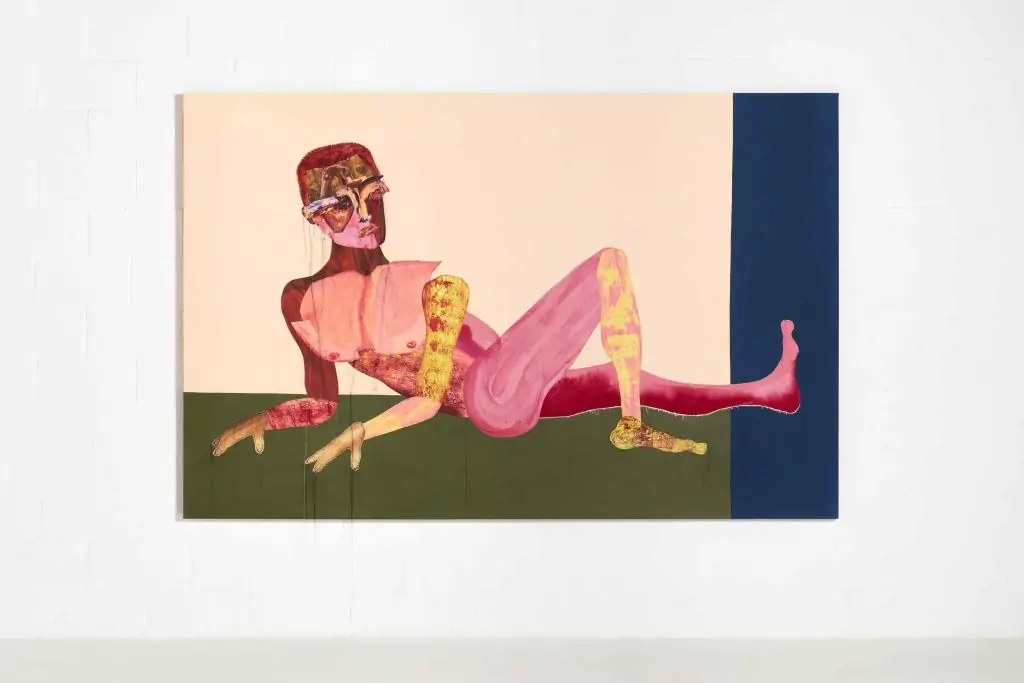
Credt Hayden Phipps & SGuild
Nigerian-British ceramicist Ranti Bam’s terracotta torso vessels abstract and stretch what it means to hold language. Enthralled by etymology, Bam’s creative endeavours are a means of communication. “We express ourselves to encapsulate our experiences in a tangible form, to share,” she reflects.
This intimacy is echoed in Luyanda Zindela’s painstakingly sketched drawings, largely drawn from a series titled Abangani bami – izithombe zami (my friends – my images). Here, the artist posits the idea of close friendships as metaphorical mark-making processes. Drawn to the traditional, laborious nature of cross-hatching, each juncture of line meeting line is an imprint of tenderness, of self.
Chaos/complexity theorists argue that the development and learning of language is not a straight-forward process. Rather, like Africa-centred understandings of time, language is a sloshing, not an ordering. In Kamyar Bineshtarigh’s large-scale paintings, his interest in calligraphy and script makes room for abstraction; lines become blots and language is layered in such a way that its stratifications, if they exist, are imperceptible. Words, histories are things that sit on top of each other.
Languages of the intimate vernacular, or, our mother tongues play an interesting role in how we observe and keep rituals of memory and meaning. Ingrained with its own bureaucracies, rules of engagement honed over time, over place. The personal is political, but the vernacular creates its own politic, veiled in the familial, the traditional, the rituals of the mundane and the magical.
Featured Artists
Ranti Bam
Kamyar Bineshtarigh
Adam Birch
Patrick Bongoy
Cheick Diallo
Andile Dyalvane
Jesse Ede
Madoda Fani
Jozua Gerard
Tony Gum
Porky Hefer
Alexandra Karakashian
Justine Mahoney
Terence Maluleke
Chuma Maweni
Manyaku Mashilo
Rich Mnisi
Zanele Muholi
Oluseye
Ayotunde Ojo
Jody Paulsen
Usha Seejarim
Katlego Tlabela
Pierre Vermeulen
Luyanda Zindela
Dominique Zinkpé
Mother Tongues opens on the 22nd of February until the 18th of April 2024 at Southern Guild
©2024 Southern Guild


